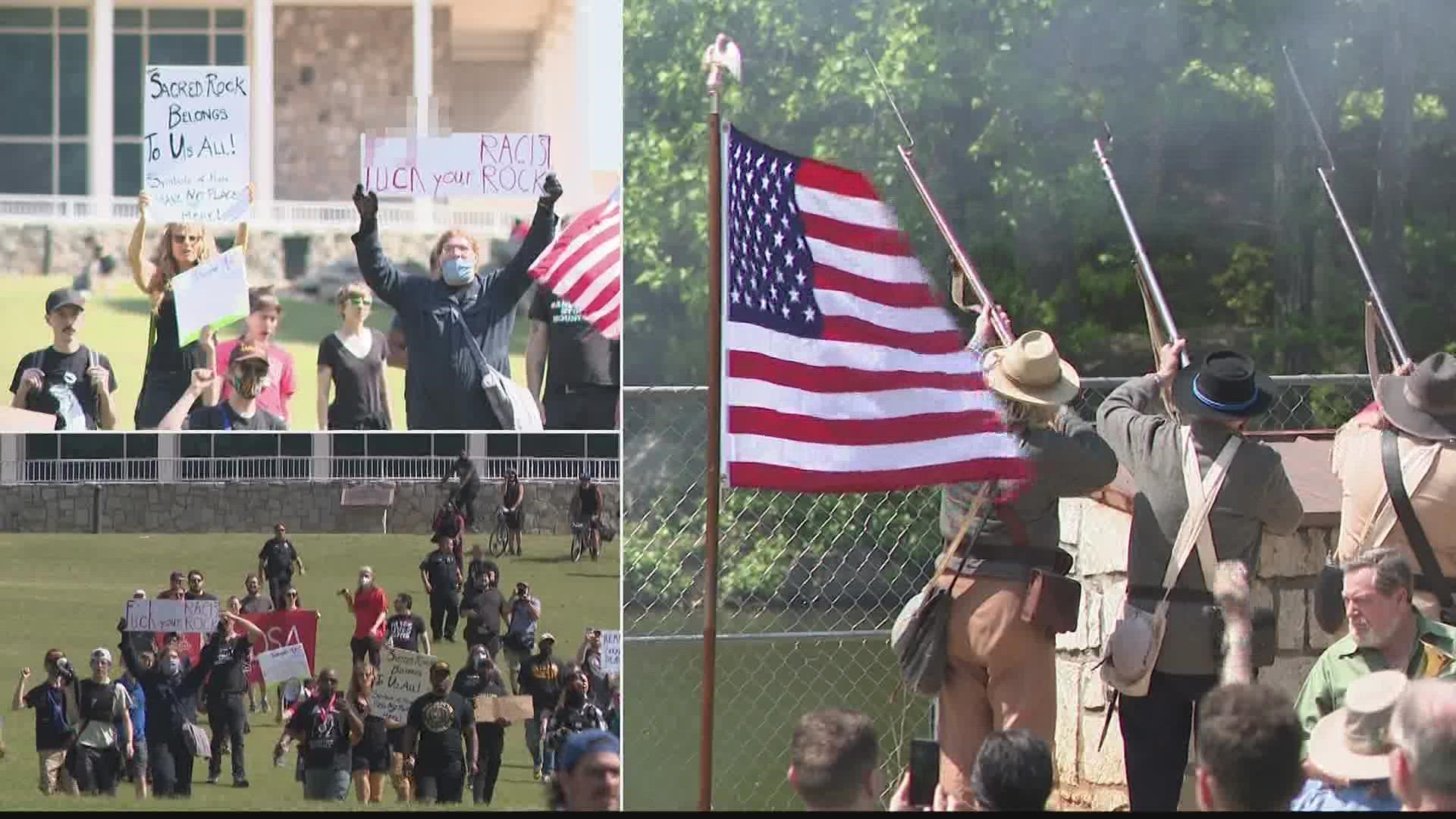NEWTON COUNTY, Ga. — Editor's note: The story above is from another report.
A Newton County woman has grounds to sue over the planned removal of a Covington Confederate monument, Georgia's highest court ruled Tuesday. But that won't be the case for everyone who files a complaint in court.
Georgia's Supreme Court said Newton County resident T. Davis Humphries' lawsuit argues it is unlawful for local governments to remove, relocate, conceal or alter historical monuments that honor Confederate soldiers can move forward. Court documents show Humphries is claiming injury.
Justice Nels Peterson writes "as a private citizen, (she) has standing to assert a claim for injunctive relief against her local county government for its planned removal of a Confederate monument," according to the opinion.
However, that's not the case for Sons of Confederate Veterans, who filed suits on similar grounds against both the Henry County and Newton County boards of commissioners.
In the same opinion, the court upheld the Sons of Confederate Veterans dismissal, citing that the group is not a "community stakeholder," as Humphries has proven to be.
"The Court of Appeals was, therefore, wrong to affirm the dismissal of Humphries's complaint for a lack of standing as to her claim for injunctive relief, but it was right to affirm the dismissal of complaints filed by the various Sons of Confederate Veterans groups," Peterson writes.
The opinion notes that the Supreme Court will not address whether the Newton County woman has standing for her claim for damages since the statute still stands.
Henry County Board of Commissioners voted in July 2020 to remove the Confederate statue in McDonough. Newton county leaders voted to do the same with its monument in Covington a week later. Their decision came shortly after the nation's racial reckoning that started in May 2020.
SCVs aimed to prevent the removal of the monuments, but have ultimately been dismissed from the conversation laying a new precedent to approach Confederate statue removals within Georgia courts and how the 2019 state law can be applied.
Peterson addresses this in his opinion, saying in this case the challenges didn't really surround the monuments themselves but the people arguing against the removals.
“This case is about a highly controversial subject: whether local communities must continue displaying (and maintaining at public expense) monuments that celebrate the Confederacy and its long-dead supporters, despite those communities finding such celebration repugnant,” the opinion reads. “But nothing about those monuments is at issue in this appeal.”

